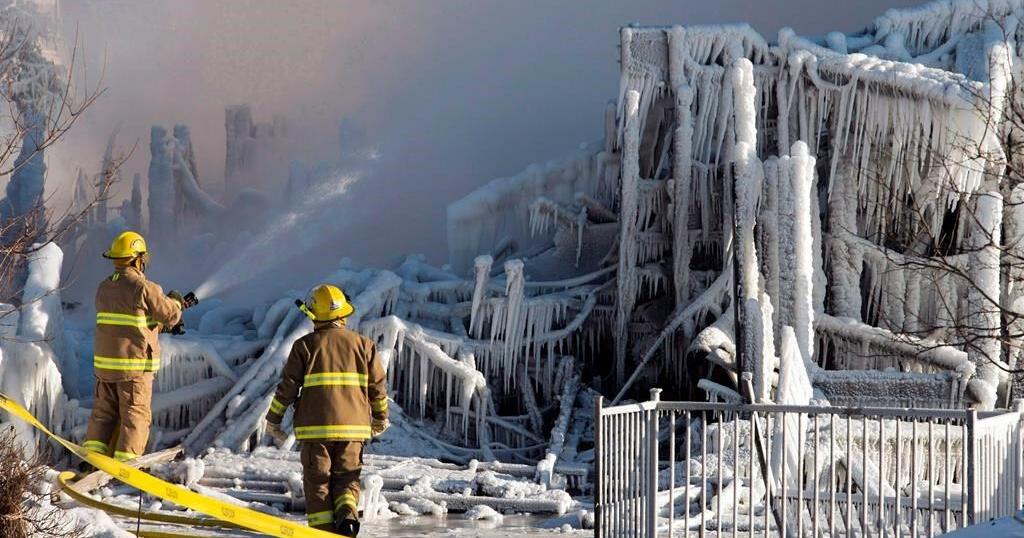MONTREAL – Jacques Marchildon says sprinklers were the nail in the coffin for Villa Marie-Ange, the 14-person seniors residence he co-owns in St-Adelphe, Que. In the coming months, the two-storey building in the Mauricie region between Montreal and Quebec City will be put up for sale and the people currently living there will all be moved elsewhere.
His will join a list of more than 500 seniors homes that have closed in the past five years, according to the province. Owners and researchers cite as factors the burden of stricter government regulations, rising costs, and an aging population of tenants requiring increasingly complex health services.
For small residences, the sprinkler issue looms especially large.
Quebec mandated sprinklers be installed in all seniors homes with at least 10 units after a fire killed 32 residents of a seniors home in Îsle-Verte, Que., in 2014. While there are programs to help offset the cost, residences must pay upfront. Marchildon said the cheapest bid he found was $150,000 — money he doesn’t have and can’t borrow.
“There is no bank that will lend money, for any reason, to seniors residences with less than 50 units,” he said.
Marc Fortin, president of an association of seniors homes — Regroupement Québécois des residences pour aînés — estimates that some 1,100 of them have closed in the past decade, and blames the sprinkler mandate for 600 closures. He said the prices of sprinklers is high and contractors are hard to find, making the problem “unmanageable.”
The mandate, imposed a decade ago by a previous provincial government, is a bad one, he said, adding that it doesn’t apply to other places that house vulnerable or elderly people, including small hospitals. “But it applies to (seniors homes) because there was a tragedy at l’Île-Verte. Politicians, he said, “want to look good.”
Quebec’s current government has acknowledged the sprinkler rules have created challenges for seniors residences, especially smaller ones. On Thursday, it announced it was delaying the deadline to install the sprinklers from the end of this year to December 2027.
Fortin welcomes that decision, saying it will prevent a good number of the 363 private seniors homes that don’t have sprinklers from closing.
However, the sprinkler mandate isn’t the only challenge facing the homes. And it’s not only small residences that are closing.
On Aug. 8, the owners of La Sittelle, a residence housing 80 seniors in Trois-Rivières, Que., announced its closure, citing troubles with hiring staff, rising homelessness affecting security and quality of life, and growing requirements for certification.
“This regulatory burden has become a major obstacle, making the daily management of the residence increasingly complex,” the facility said in a statement.
A report released in May by research centre CIRANO found the regulations around seniors homes have multiplied in recent years, which, coupled with rising costs, have made the current model “unsustainable.”
Fortin says some of those requirements include the installation of door locks, surveillance cameras, and devices to regulate the temperature of bath water, which are expensive and often annoying to younger seniors.
The researchers also noted that private residences are increasingly being asked to provide a much higher level of care to residents who would ordinarily qualify for a space in a long-term care home but can’t find a spot.
Fortin notes that seniors homes — which normally offer services such as a meal plan, activities, and some support from personal or health-care workers — are in some cases being asked to provide care to people who need help walking, washing, taking pills or staying clean, including many with dementia or Alzheimer’s.
While the province provides some subsidies for more specialized resident care, Fortin says the government regularly reimburses less than the services cost, forcing the owners to foot the bill.
“They try to underpay, to not pay a lot, or to tell us, ‘do it for free because we don’t have the budget, so take care of it.'”
Marchildon, of Villa Marie-Ange, says the rise in the number of people with complex needs is part of a broader societal shift that has seen people stay in their own homes longer and delay coming to a seniors residence. He says the rising proportion of people with complex needs makes it harder for a small rural residence like his to offer the kind of activities that would attract younger, more active seniors.
“It’s a question of ambiance,” he said.
The CIRANO report noted that, despite a 23 per cent decrease in the number of seniors homes in the province between 2015 and 2023, the number of available spots has risen slightly. That’s because the homes closing down are largely smaller facilities with fewer rooms — often located outside big cities.
Fortin said the increase in rooms in big residences doesn’t change the fact that the closure of a small home in a rural area is a big loss for an older person, who has to contend with the stress of moving away from their friends and family. It’s also a loss for the towns, because many seniors are involved in the community and are keeping the local church alive.
“We lose a little bit of the soul of the village when we’re forced to move the elders away,” he said.
This report by The Canadian Press was first published Sept. 1, 2024.

























